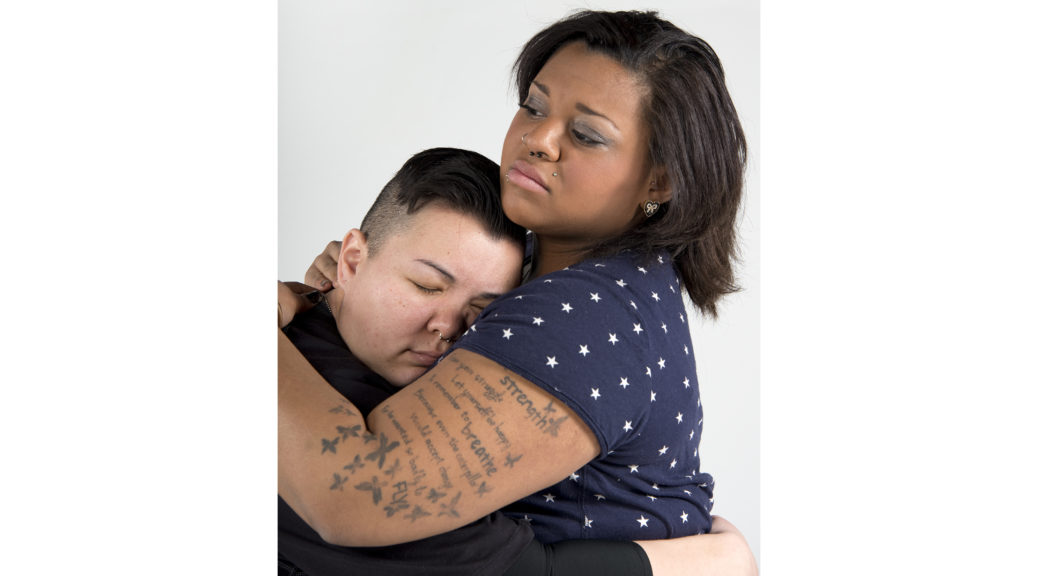
Expressing Empathy: Part 1
“Empathy is really the opposite of spiritual meanness. It’s the capacity to understand that every war is both won and lost. And that someone else’s pain is as meaningful as your own.” – Barbara Kingsolver, author.
Katrine Bellamy thinks this story is funny. It’s the story of how people sometimes react when they hear about cancer. Katrine and her neighbor took turns walking the kids to and from school. But, on the day she learned her 9-year-old son had a brain tumor, she asked her neighbor to pick up the children. When Katrine arrived home, she saw her neighbor standing in the driveway, waiting for her. “She literally collapsed in my arms,” said Katrine. The distraught women cried as Katrine reassured her that everything would be alright. Katrine needed a friend who would listen. She ended up helping her friends cope with the news instead.
This is an article about empathy. It is easy to misunderstand the difference between sympathy and empathy. When you have sympathy you have compassion for another person and acknowledge their hardship. Empathy is when you understand and feel another person’s feelings for yourself; it is a mutual experience of feeling. With empathy you “put yourself in their shoes.”
To better understand the difference between sympathy and empathy, imagine that someone is trapped in a hole and calling for help. Sympathy allows you to look through the opening. From above you holler down that you’re sorry they fell into the hole. If you’re sympathetic, you may feel bad for the other person but you don’t see the situation through their eyes.
When you have empathy, you crawl down into the hole to stand with the person and provide support. You are being empathic when you fully consider the other person’s point of view – not how you would react in their situation – but by trying to understand the situation from their perspective. People attending support groups, for example, often feel empathy for each other because they have had similar experiences. Empathy does not require you to reply, agree, or fix problems. It does let others know you care and are willing to listen.
Both sympathy and empathy are important communication skills especially for those going through a cancer journey. Sympathy can be the more appropriate expression when communicating with strangers. However, empathy is often more effective with people you know, because empathy is more intimate and reciprocal. Sympathy is projected outward but is not a shared experience like empathy.
The one constant about communication during stressful times is that every person and every situation is different. That’s why empathy is so important. It can be a guide and help you develop responses that another person, based on their own unique personality and experience, would find empathic.
Culture, religious beliefs, medical treatment, past experiences, and personality all influence the direction and tone of conversations about cancer. Have you ever tried to be empathic but your comments didn’t go over so well? Or you’ve said what you thought was the right thing, like “I’m sorry,” and the person got angry? If you’re a patient, has someone upset you by asking how you’re doing? Striking the right balance of what to say, when to say it, and how to say it can be hard. This article discusses common scenarios where empathy can make a significant difference in conversations, and it offers tips on how to be more empathic when talking with someone about cancer.
To learn more about your level of empathy, read the following statements. Which describe you most of the time?
- I usually see issues as black and white.
- I have difficulty figuring out other people’s feelings.
- In a conversation, I usually think about the next thing I’m going to say rather than listen to the other person.
- I usually feel bad for people who are being treated unfairly.
- I can usually tell when someone says one thing but means another.
- People sometimes tell me I’m insensitive.
- I can usually tell when someone is uncomfortable.
If numbers 1, 2, 3, and 6 describe you, then you may not display empathy well. If numbers 4, 5, and 7 describe you, you may frequently or easily show empathy. Everyone has times when they lack empathy. However, people with high empathy usually tend to be sensitive to the thoughts and feelings of others. They easily read between the lines, sense when others are uncomfortable, and are good listeners. They may not always agree with others but can take another person’s perspective to better understand a situation.

This research project was funded by a grant from the National Cancer Institute (CA144235; Dr. Wayne Beach, San Diego State University, Principal Investigator). Co-investigators included Dr. David Dozier from San Diego State University, and Mary Buller, Dr. Valerie Myers, and Dr. David Buller from Klein Buendel, Inc.